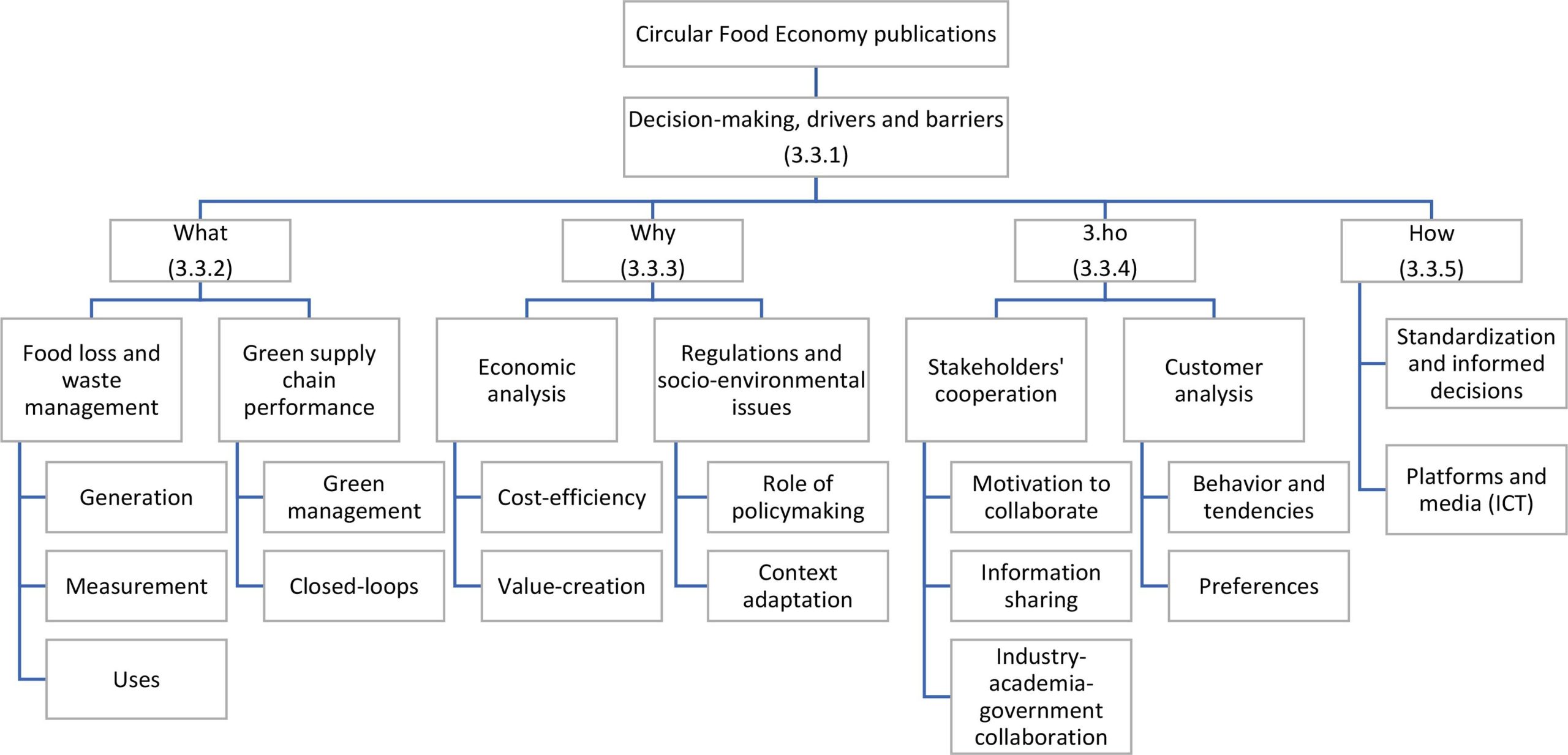REPORTS
Reports
“Characteristics of decision process towards Circular Food Economy: A review” was published
“Characteristics of decision process towards Circular Food Economy: A review” was published.
In June 2023, Nishino laboratory’s paper “Characteristics of decision process towards circular food economy: A review” was published in Cleaner Logistics and Supply Chain.
▼Abstract
The agri-food supply chain has unique characteristics, such as perishability, high product differentiation, and safety requirements, which results in one-third of its production being lost and wasted. The chain is also responsible for emitting annually the equivalent of 3.6 gigatons of CO2. Recently, the circular economy has experienced advances in non-perishable products, and the agri-food system has been studied mainly through conceptual research. In contrast to other supply chains, there are conditions in the agri-food supply chain that stakeholders are unable or reluctant to explore when adopting circular alternatives. For instance, the costs involved in food recovery and reuse, market advantages, regulations, and education are relevant to incentivizing holistic sustainability in the agri-food sector. However, few studies have focused on the adoption of circularity in this chain as a complex system. The decisions, incentives, and obstacles relevant to adopting circular alternatives within and between echelons, and why, when, and how stakeholders made them, have not been directly analyzed. In this context, a systematic review of existing circular economy publications within the agri-food supply chain domain was conducted and is discussed in this review with two aims: (1) to establish the frontiers of studies related to circularity adoption by the chain, referred to as the circular food economy (CFE), so as to understand the characteristics of the decision-making process of the different stakeholders of the chain; and (2) to summarize the barriers and drivers mentioned in the literature, including discussing their impacts on what, why, who, and how decisions to adopt CFE are currently made. The results showed the complexity of studying circularity in agri-food supply chains and revealed that food loss and waste, cost-efficiency alternatives, policy-making, information and communication technologies, customer preferences, stakeholder cooperation incentives, and industry-academia-government collaboration are key aspects of the decision-making process. Potential future studies within this domain are also discussed.
▼Read more
https://www.sciencedirect.com/science/article/pii/S2772390923000136?via%3Dihub
